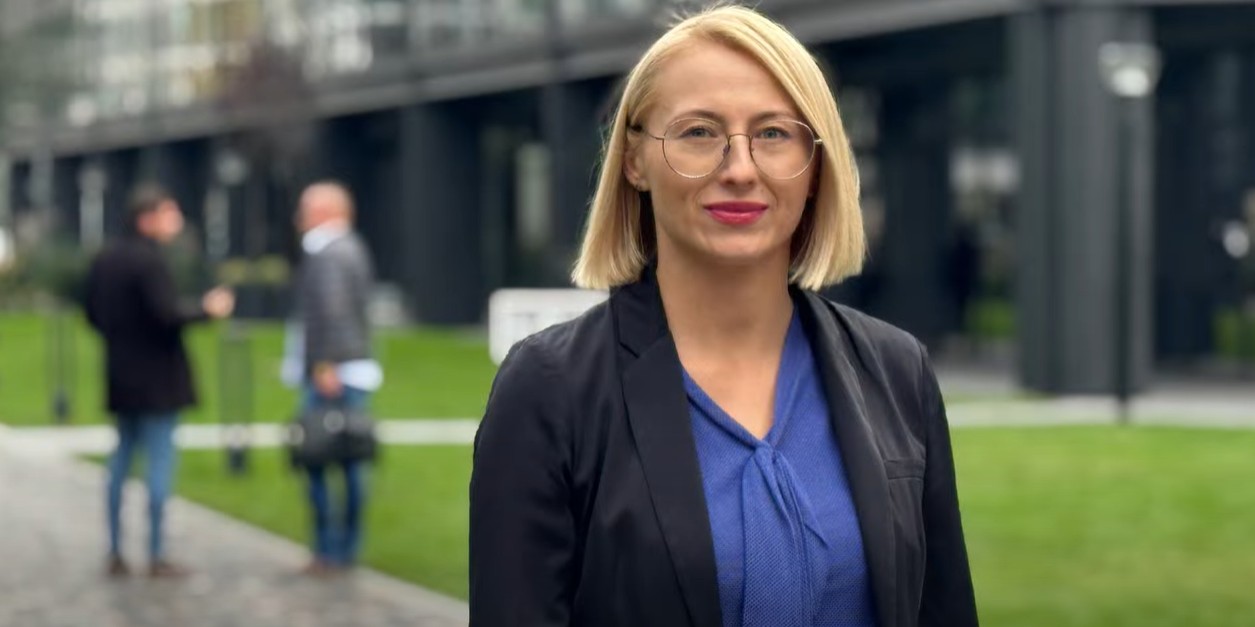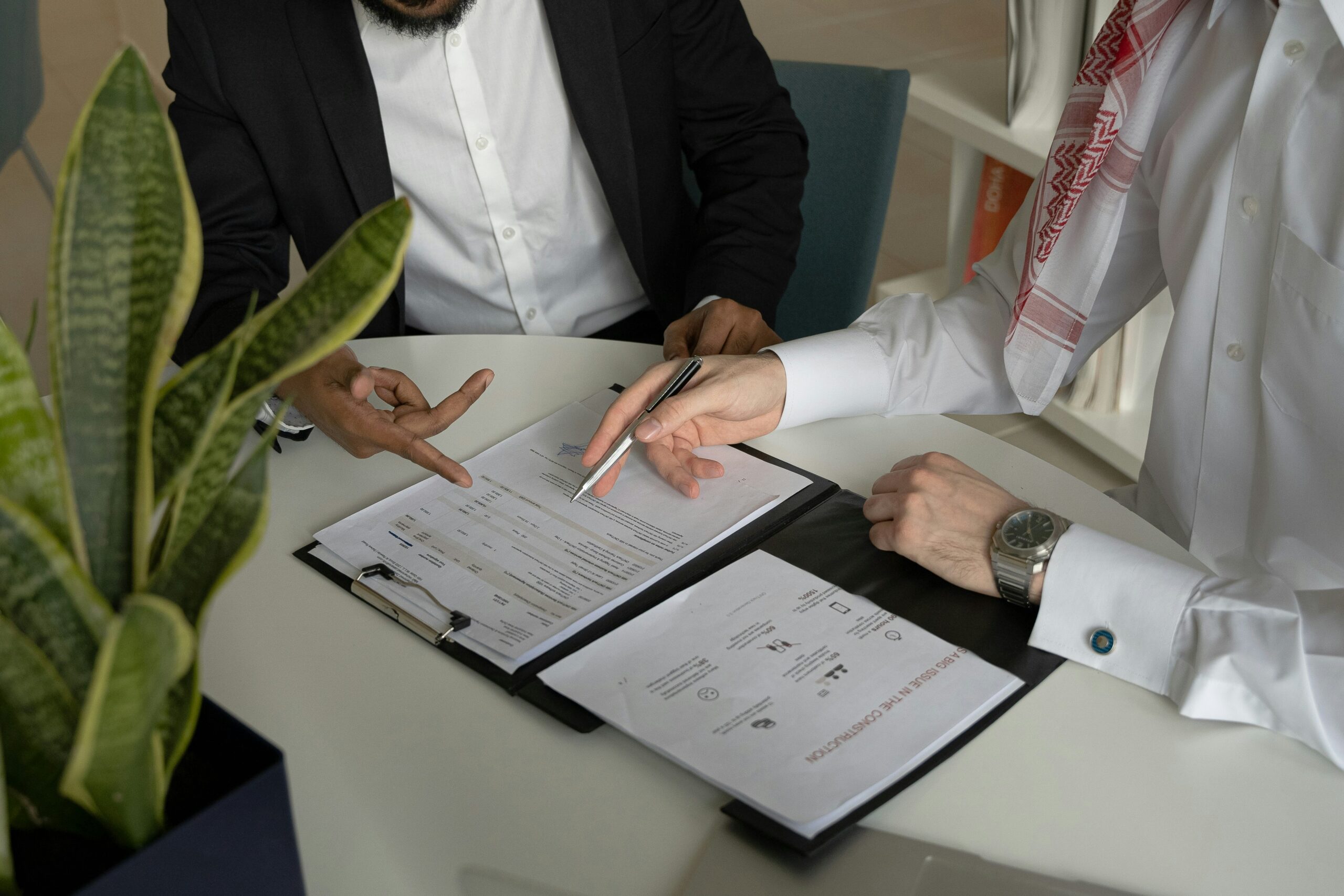
We are pleased to share that on October 6th, 2025, Małgorzata Dankowska, one of our Managing Partners, was a guest on the “Estate FM” podcast, hosted by Tomasz Cudowski. During the conversation, they discussed key topics related to the commercial real estate market and the challenges the industry may face.
Below you may find a link to the YouTube recording – we invite you to listen to the full episode in podcast form.
EXPO Real 2025 Special – Małgorzata Dankowska of KodaIn this article, we have also provided a full transcript of the interview in a Q&A format, which you may find below.
Koda & Estate FM Podcast – Expo Real 2025. Interview transcript
Tomasz Cudowski: How did you approach this year’s Expo, and what are your expectations?
Małgorzata Dankowska: Well, I must admit I’m quite optimistic this year. So the transaction market is in a different place compared to the last year, and I’m keen to see and to learn how investor appetite for the Polish real estate market is evolving, especially following the recent interest rate cuts not only in the EU but also in Poland. So we do have the increased attractiveness and availability of debt financing, and I look forward to gaining insight into how it will influence the investment models.
Koda is a relatively new company on the Polish market, but founded by experienced experts well known in the industry. Could you briefly describe what Koda does?
Certainly, it’s of course always a pleasure to talk about your own business, but basically, Koda was founded as a response to the strategic tax and accounting advisory needs of the commercial real estate market.
As a boutique firm, we position ourselves by offering hands-on advisory, process-driven accounting, but we do combine it with the business perspective that helps our clients to cut through all the tax and financing, and financial intricacies on the Polish market. We believe that it allows them to focus on their core business and to accelerate growth in their real estate transactions.
On the service line sides, we do support our clients throughout the entire product life cycle. We advise them with the structuring, the transactional advisory, due diligence, ongoing accounting and payroll processes, and we go up to the investment exit strategies. So our model is making business easier. We really try to deliver that.
Let’s talk about the Polish investment market. Are asset deals or share deals currently possible?
Yes, they are.
Poland is actually both an asset and a share deal market, but obviously, each of the option triggers a different tax implication. The choice depends on the investor’s strategy as well as on their tax and negotiation position. But understanding these differences is key to futureproofing their own strategies, and we do help our clients just to understand that and pick the option that is the best for them.
A letter of intent is a fundamental milestone in every transaction as we know. Of course, each LOI looks different, but there is a set of provisions that should be included in almost every document. Which of these are the most important for you?
Well, an LOI should basically define the key terms of the transaction. Apart from the basis for the purchase price or the condition proceedings to closings or exclusivity periods and so on, it should also cover the topics that are tax-driven or tax-related, especially when it comes to any tax sharing options or reduction of the price with the latent capital gain tax.
So in the end of the day it should be composed in a way that it protects the parties’ interests, together with positioning them as strong negotiators in the whole transaction.
What are the main limitations regarding project financing in Poland, and what is the biggest challenge when it comes to interest deductions?
Well, it comes to the financing structuring, it’s always the case that we are approached and addressed by international investors in that. The good news for them is that we do not have in Poland the typical thin capitalization restrictions, meaning that you can inject the debt financing into the company independent of the level of the equity. So there are no strict rules on that.
But on the other hand, we have implemented the EU directives in a quite strict way. So we do have earnings stripping rules that limit the tax deductibility of the debt financing costs. So in the end it’s quite important to structure in a way that on one hand it allows you to be flexible in terms of the profit distribution but on the other just to optimize your business results.
However, Poland is considered a country with a rather complicated tax system. In your opinion, what instruments best hedge tax risk?
Well, we do have a bit of complexity indeed, but on the other hand, we have a range of different tax instruments to allow you to manage the tax risk.
We can start with the very popular and common on the real estate market tax rulings safeguarding the VT positions and the VT in the asset deal transactions. We do have binding rate information that also safeguards the VT rates that are very commonly used in the PRS and PBSA sector. We have a range of opinions, motions, correspondence, and certificates that are also being applied to mitigate a different risk. So I would say that indeed complexity is there, but there is also a range of tools to manage that.
A question that is undoubtedly on the minds of many investors, not only foreign ones. Can real estate in Poland be purchased directly through a foreign vehicle?
It is possible indeed. And I must admit that, judging by our experience, it’s more and more common these days. It involves a bit more tax considerations and compliance obligations.
But the strategic structuring is required again to cut through the noise of different complex regulations and ensure full compliance. But on the other hand, it may facilitate the structuring for the foreign investors.
Finally, I’d like to ask you for a brief market forecast for the coming months. How do you think the investment market will behave? And is it worth investing in commercial real estate in Poland?
I do believe that currently, the markets are positioned for growth. This is supported not only by the good microeconomics fundamentals, but I believe that also good proof is recovering transaction volume when we compare Q2 2025 to the last year or 2023, it’s obviously increasing.
We do see the increasing investor confidence, so we expect that it’s going to be continued traction in different segments and not necessarily only opportunistic but also core and added-value ones. The reduction of the interest rate is also expected to further future-proof the whole market.

Making business easier.





